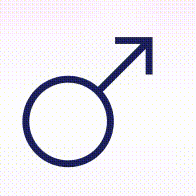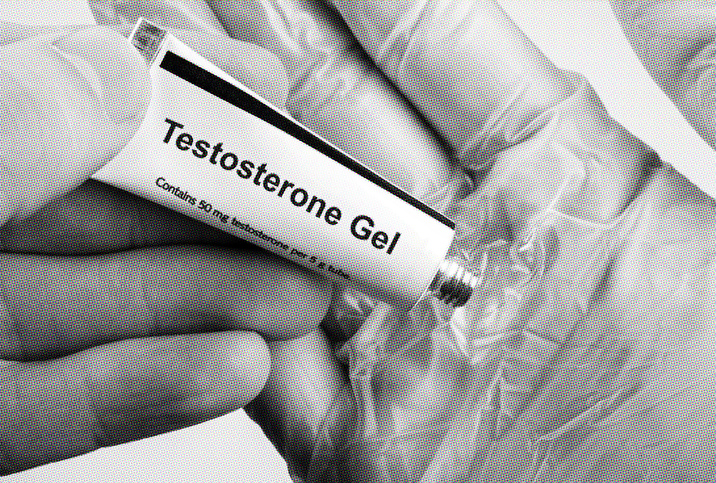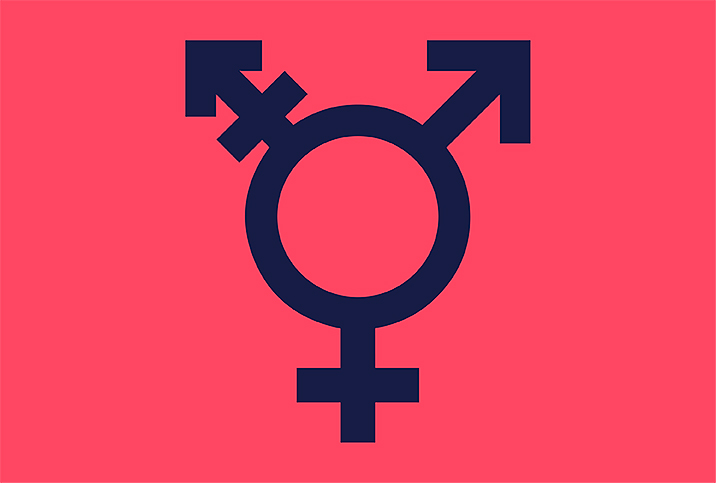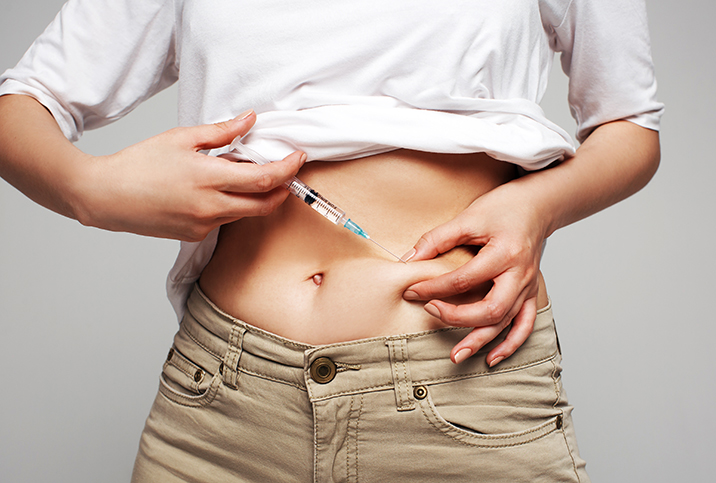Dating While on Hormone Therapy
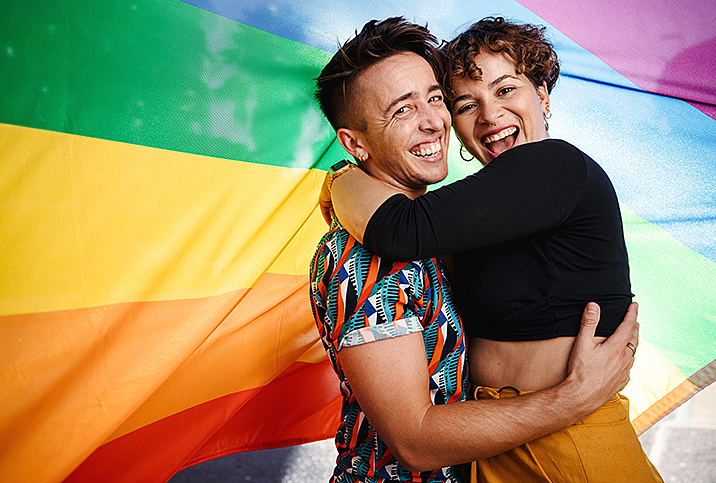
When London-based Tiffany first started taking estrogen 12 months ago, she initially thought the hormones had caused her sex drive to decrease drastically. Soon afterward, she started seeing a psychosexual therapist who coached her through an epiphany. "I grew to realize it was actually the way I was accessing desire that had changed," Tiffany explained. "I didn't get random bursts of horniness like I was used to getting from testosterone. Instead, I had to take things slower, set the mood and really treat myself right."
Stories like this aren't uncommon. It's just that, to avoid online transphobia, trans people usually shared them in safe, moderated spaces, like subreddits and Facebook support groups.
Not all trans people undergo hormone therapy, which involves taking synthetic hormones for the purpose of gender transition. But those who do are well-versed in the changes it brings––usually more so than medical professionals. It's also not just trans people who take hormones; hormone replacement therapy (HRT) is commonly prescribed to cisgender (non-trans) women to relieve the symptoms of menopause, whereas some cisgender men with low testosterone levels take hormones in the form of testosterone gels and patches.
When it comes to hormone therapy for trans communities, the Mayo Clinic summarizes various effects: masculinizing hormone therapy (testosterone) causes voice deepening, body hair growth and bottom growth (clitoral enlargement), whereas feminizing hormone therapy (estrogen) sparks breast growth, softens the skin and redistributes body fat. As well as these physical effects, a 2021 study published in the Journal of the Endocrine Society found hormone therapy reduces gender dysphoria—deep, psychological stress linked to your gender assigned at birth—and vastly improves mental health.
Unsurprisingly, this heady cocktail of mental and physical shifts can cause some pretty huge changes in the way trans people date, have sex and fall in love.
'It's a real learning curve to manage [mood swings] while also dealing with dysphoria and managing your partner's emotions, too.'
U.K.-based Jordan Green was single when he started taking hormones, but soon afterward he started dating another trans guy also newly on testosterone. "Dating is challenging at the best of times, but when you're going through such a major life change, it's very stressful," he said. During the first few months in particular, Green was "constantly hungry, sleepy and horny—literally 24-7," he said with a laugh. "It was horrendous!"
Yet the biggest changes for Green were tied to his feelings and emotions. "I became more irritable, angry and just grumpy all the time, which was extremely difficult to deal with," he continued. Hormone therapy also complicates dating, as it means relying on a partner to be patient and understanding of the mood swings hormones can bring. "Talking about it when you're dating someone new is hard because you basically have to say: 'I am probably going to be a bit of a dick because of the testosterone!' It's a real learning curve to manage that while also dealing with dysphoria and managing your partner's emotions, too."
When U.K.-based Caulay Cash first started taking hormones, she was "dating a few people. Now I'm not, so you do the math," she joked, alluding to dating on hormones being a nightmare. For Cash, being a trans woman on dating apps was often already an absolute shit show—a minefield laden with unsolicited, intrusive questions (usually about her genitalia) and fetishization. This is often the case for openly trans people on dating apps more generally—either potential partners reduce them to nothing more than their trans identity, or project their own fantasies and expect trans people to educate them on whatever issues they're curious about.
Five months on hormones also had an emotional effect on Cash, who began to feel more comfortable in her body and less willing to tolerate bullshit. "Hormones changed my outlook on dating more than anything," she explained. "I think, when I started [taking them,] I almost started to respect myself as a trans woman a lot more. This led to me changing the way I dated as a whole. I was only really willing to date people who were open about the fact they dated trans women. I refuse to be a secret."
Some trans people deal with the difficulties of navigating the stigma and fetishization of dating by predominantly seeking out trans partners. When Tiffany started taking estrogen, she was in a relationship with her now-fiancé, a trans-masculine non-binary person who could relate to what she was going through. "[My partner] takes testosterone so has a much higher sex drive, but once I stopped being so phallocentric with my understanding of sex and desire in general, we discovered some amazing new ways to have sex. The key for us has always been communication—we have signals and code words for everything, that way no one has to reject anything outright and make the other person feel unwanted."
Especially during the early months of hormone therapy, dating trans partners with lived experience of taking the medication can take the stress away from conversations around some of the more taxing side effects. "I was literally an emotional mess for the first three months," Cash recalled. "I had constant mood swings, hot sweats and stress, plus my sex drive was all over the place—some days I would be horny as hell, like a dog in heat, and on other days, the thought of sex repulsed me. It was always one extreme or the other. Plus, on some days, my breasts literally feel like they've been set on fire!"
For menopausal cisgender women taking HRT, the side effects are similar—from sore, tender breasts to headaches, nausea and bloating, hormones and feeling sexy don't exactly go hand in hand. Again, honesty is the best policy when navigating this with new partners.
When it comes to trans communities, hormone therapy undeniably brings its own challenges, but these are a minuscule price to pay for alleviating dysphoria. In this context, hormones are a lifeline, yet they remain difficult to access in even the most privileged countries.
In the United States, a 2020 study published in the Annals of Family Medicine found "nearly 1 in 10 Americans are turning to non-prescription sources for gender-affirming hormones, including friends, relatives and internet pharmacies." As it stands, only 24 states require private insurance companies to cover gender-affirming treatment, and then there's the fact that millions of Americans remain uninsured altogether. The situation is similarly dire in the United Kingdom, where waiting lists for gender-affirming services on the country's NHS (National Health Service) can stretch out for years. This wait can be fatal. Earlier this year, trans activist Sophie Gwen Williams, who cofounded NGO We Exist London to financially support trans people in need of private healthcare, died by suicide after being faced with a five-and-a-half-year wait to access gender-affirming services.
After months of being left with no choice but to educate her own doctor on her healthcare needs, Cash chose to pay for private treatment rather than jumping through the hoops required by the NHS. Tiffany said she was lucky to qualify for Trans Plus, a groundbreaking pilot scheme that allowed her access to hormones and the aforementioned therapist, but there is a risk of vital services like these not being recommissioned—in other words, the currently temporary program could lose government funding and be scrapped within the next few years.
Dating on hormone therapy means not only guiding potential partners through the physical and mental shifts triggered by hormones, but also relying on a partner being supportive and understanding of the never-ending fight to maintain access to this vital healthcare. Yet this is possible, and everyone I speak to alludes to the importance of seeing a positive, realistic representation of trans love. "The biggest misconception is that trans people don't or can't date, because nobody will love us," Tiffany concluded. "My partner and I are proudly in a trans relationship. In fact, their trans-ness makes me love them even more."








